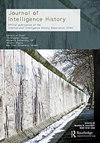重新评估移民:冷战初期的情报收集和政策制定
引用次数: 0
摘要
摘要从1948年开始,中央情报局和政策协调办公室试图利用和利用苏联新移民的才能,更具体地说,将他们派往铁幕后的秘密行动中。这篇文章的目的是修改人们普遍接受的关于两次美国资助的移民行动的说法,展示如何将其评估为情报收集活动而非秘密行动,并展示这些移民如何在提供有关苏联目标的情报方面发挥关键作用。这项研究还将调查这种秘密行动是如何与美国政策制定联系在一起的,以及美国政府的感知需求——主要是为苏联袭击欧洲建立“预警”系统,以及对苏联目标信息的需求——是如何在冷战初期形成情报收集的。本文章由计算机程序翻译,如有差异,请以英文原文为准。
Re-evaluating the émigrés: intelligence collection and policy-making in the early Cold War
ABSTRACT Starting from 1948, the Central Intelligence Agency and the Office of Policy Coordination tried to harness and utilise the talents of recent émigrés from the Soviet Union, more specifically, to dispatch them in secret operations behind the Iron Curtain. The purpose of this article is to revise the commonly accepted narrative on two American-sponsored émigré operations, showing how they should be assessed as intelligence collection ventures rather than covert operations, and to demonstrate how these émigrés played a key role in providing intelligence on the Soviet target. The study will also investigate how this kind of covert action tied into US policy-making, and how the perceived needs of the US administration – chiefly creating an ‘early warning’ system for a Soviet attack on Europe and the need of information on the Soviet target – shaped intelligence collection in the early Cold War.
求助全文
通过发布文献求助,成功后即可免费获取论文全文。
去求助
来源期刊

Journal of Intelligence History
Arts and Humanities-History
CiteScore
0.50
自引率
0.00%
发文量
21
期刊介绍:
The Journal of Intelligence History is the official publication of the International Intelligence History Association (IIHA). It is an international peer-reviewed journal that aims to provide a forum for original research on the history of intelligence services, activities and their wider historical, political and social contexts. The journal aims to publish scholarship on all aspects of the history of intelligence, across all continents, countries and periods of history. We encourage submissions across a wide range of topics, methodologies and approaches.
 求助内容:
求助内容: 应助结果提醒方式:
应助结果提醒方式:


